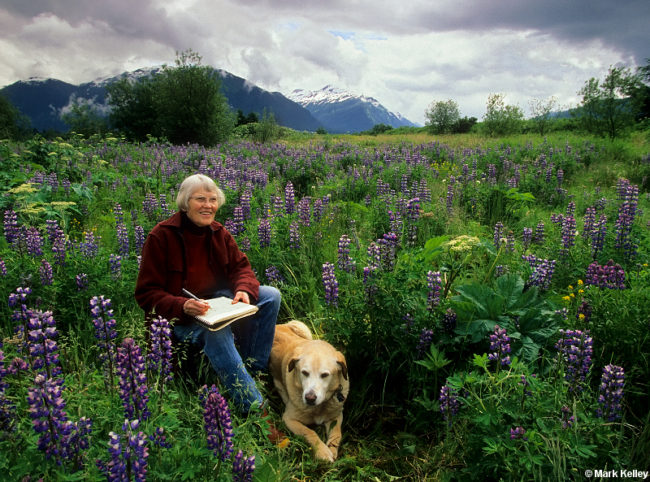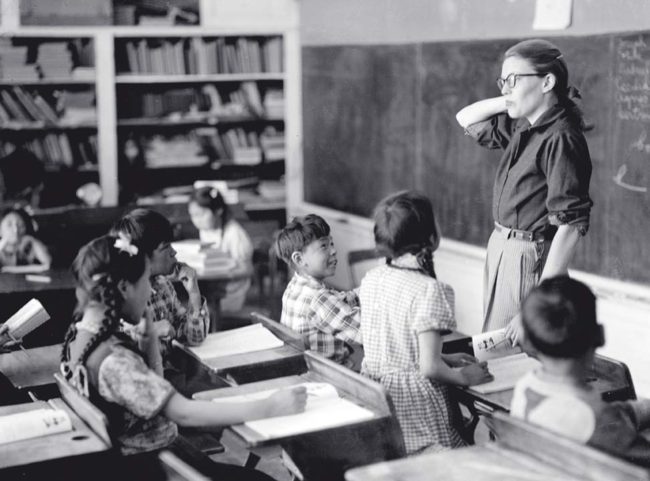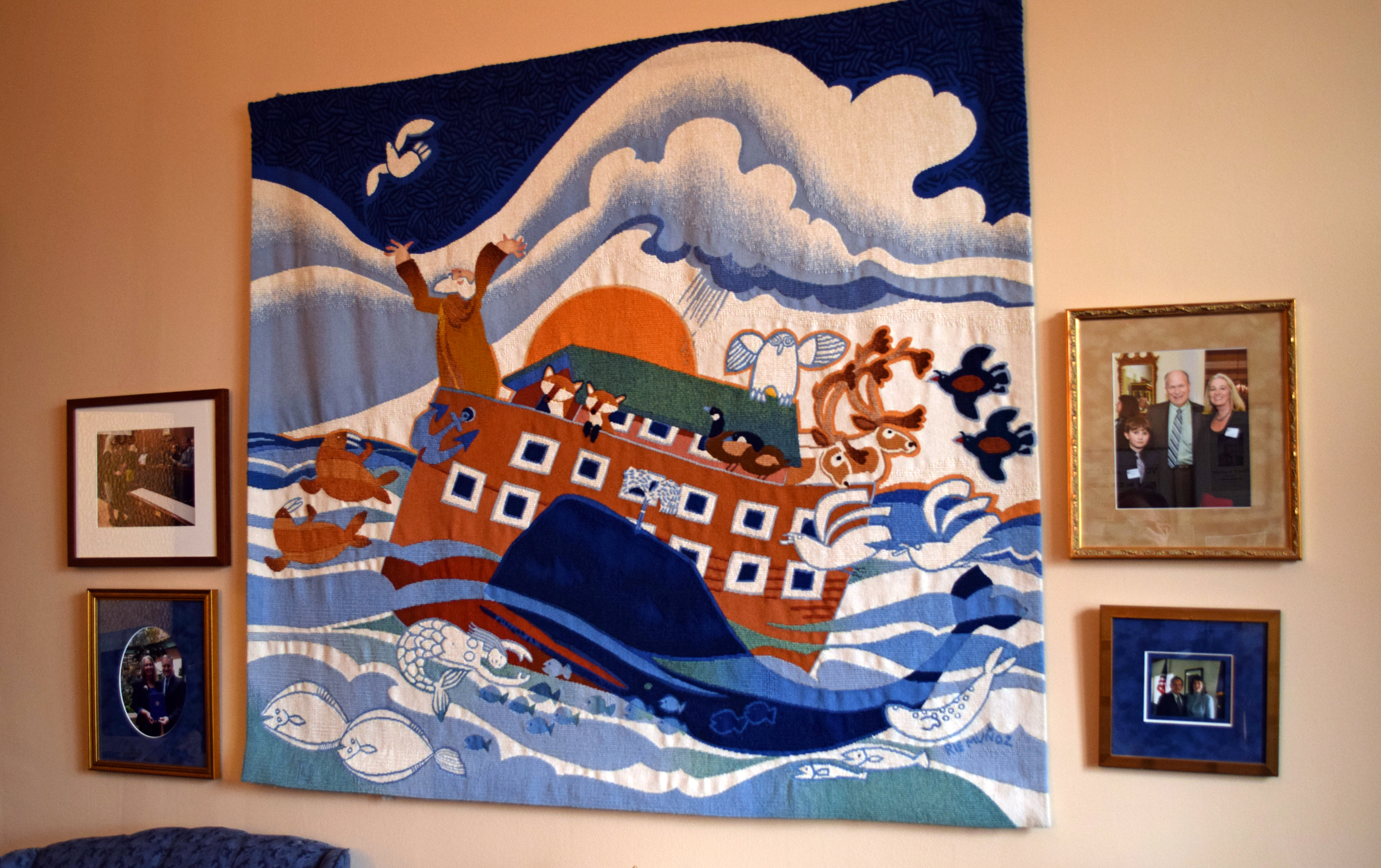
Beloved artist Rie Muñoz passed away Monday night at Bartlett Regional Hospital in Juneau after a stroke. She was 93. Muñoz was active until the end, a prolific artist and traveler who drew inspiration from everyday Alaskans.
Rie Muñoz was born in southern California in 1921 as Marie Mounier. Her parents were from Holland and she spent a lot of her childhood there, where Rie was a common nickname.
Daughter-in-law Cathy Muñoz says, as a teenager, Rie and her two brothers were separated from their parents for 4 years. They were on a boat to the United States and their parents were supposed to meet up with them one week later, but World War II broke out.
“It was her brothers and her that went on to California and on their own, they took care of themselves, they got odd jobs, they got a place to stay. After she graduated from high school, then she was reunited with her parents,” Cathy Muñoz says.
Rie Muñoz moved to Juneau in 1950, traveling by steamship up the Inside Passage. In 1951, she and newlywed husband Juan Muñoz Sr. went to teach on King Island, located in the Bering Sea, near Nome. “King Island Christmas” is based on her time there. Muñoz illustrated the children’s book and the late Jean Rogers wrote it.

After their time on King Island, Muñoz and her husband later divorced and she raised their son, Juan.
“When he was young, they were often on the road in the summertime. They would load up her van with artwork and they would travel to remote communities and they did what was called a series of clothespin art shows, where they would come into a community and string a line and then hang her paintings for sale,” Cathy Muñoz says.
That built up Rie Muñoz’s following and reputation as an artist. After holding a number of jobs like teacher, journalist and curator at the Alaska State Museum, Muñoz started making a living as an artist in 1972.
Kes Woodward is an artist, art historian and teacher. He met Muñoz in 1977 when he moved to Juneau to be the state museum curator.
He said Muñoz considered her work expressionistic. She was known for her watercolors of Alaska scenes, such as fishermen at work, children at play and life in remote villages. Woodward says Muñoz was the mostly widely traveled Alaskan artist and her art focused on Alaskan people.
“She depicted them enjoying themselves. For her, Alaska is a place that is joyous. It’s a place full of delight and joy and laughter, and I think that’s her real legacy is that she captured that better than anybody else, better than anybody ever has,” Woodward says.
Muñoz described her process in 1985.
“The subjects that I like to paint are people, people doing things. Now that doesn’t mean somebody in an office typing. But people doing things that appeal to me such as working outside in any sort of occupation mostly. And I go to many, many places to sketch and then come back with those sketches and do the paintings from those sketches,” Muñoz said.
Muñoz was speaking in a KTOO-TV series “Conversations.” At the time, she said she was painting up to 85 original works a year.

“I think that art should be creative and honest. And by creative, I mean just that – you have to create something out of yourself. As far as the honesty is concerned, I think that an artist should paint exactly what he or she wants to paint and not ask him or herself, ‘What if I paint this, will this sell?’ It just doesn’t work that way,” Muñoz said.
Her work has been exhibited in numerous museums and galleries in Alaska, Seattle and elsewhere in North America. Her work is also in many homes.
“Well, I find my art in a lot of bathrooms and one reason I do is because I’ve done a number of nudes and, of course, they’re perfect in a bathroom,” she said.
Muñoz’s death was unexpected. She was at Easter Brunch on Sunday. On Friday night, she went to her granddaughter’s first solo art show. As her granddaughter was growing up, they used to spend hours together, sitting side by side, painting and sketching.